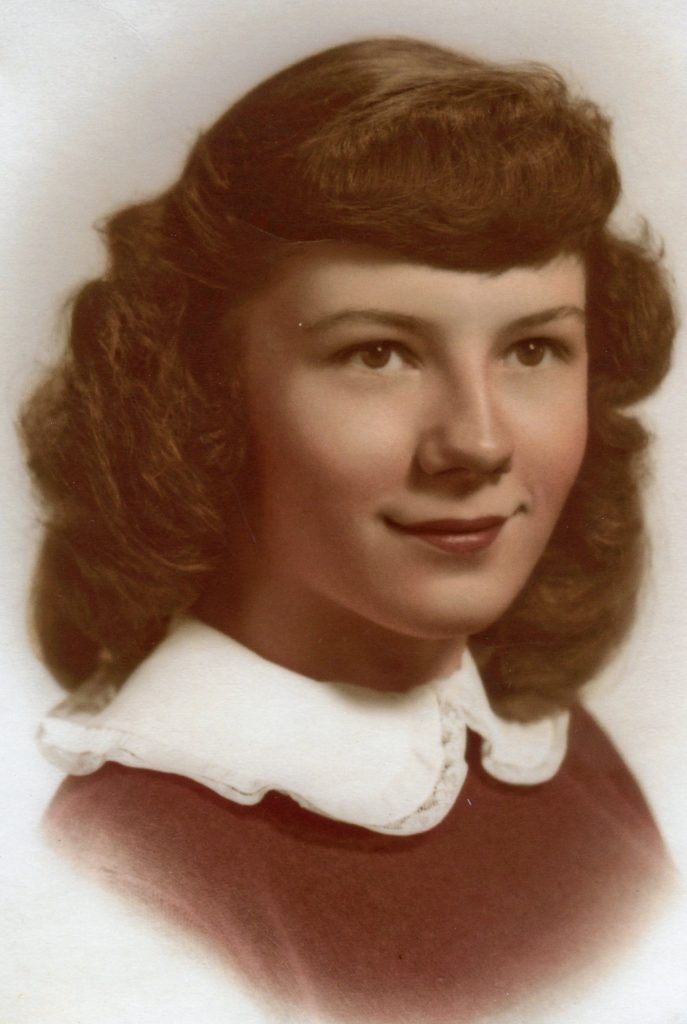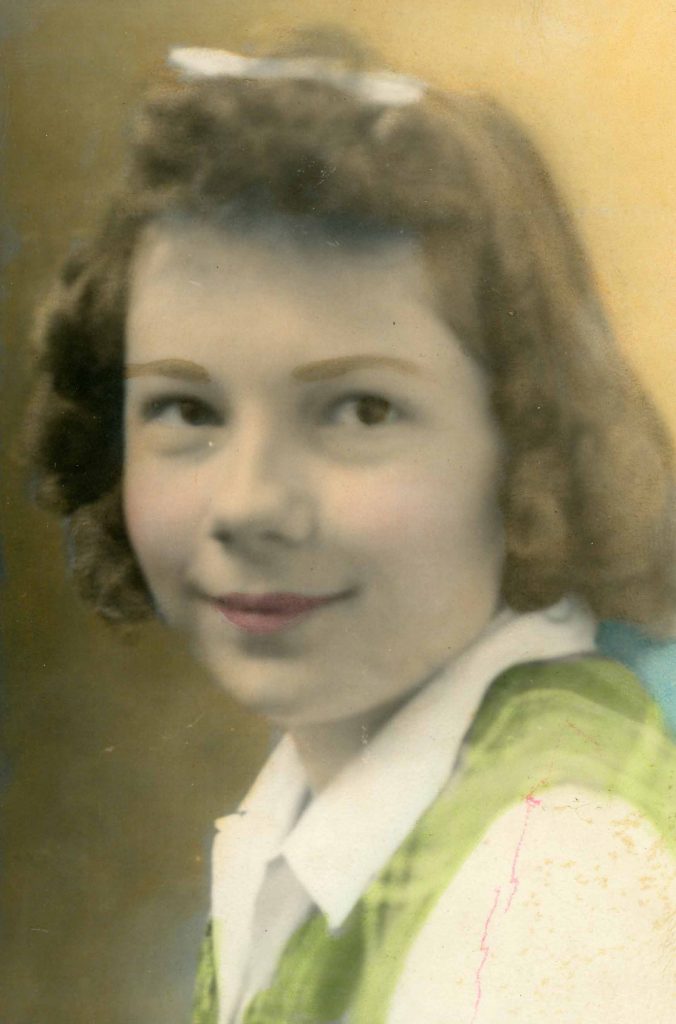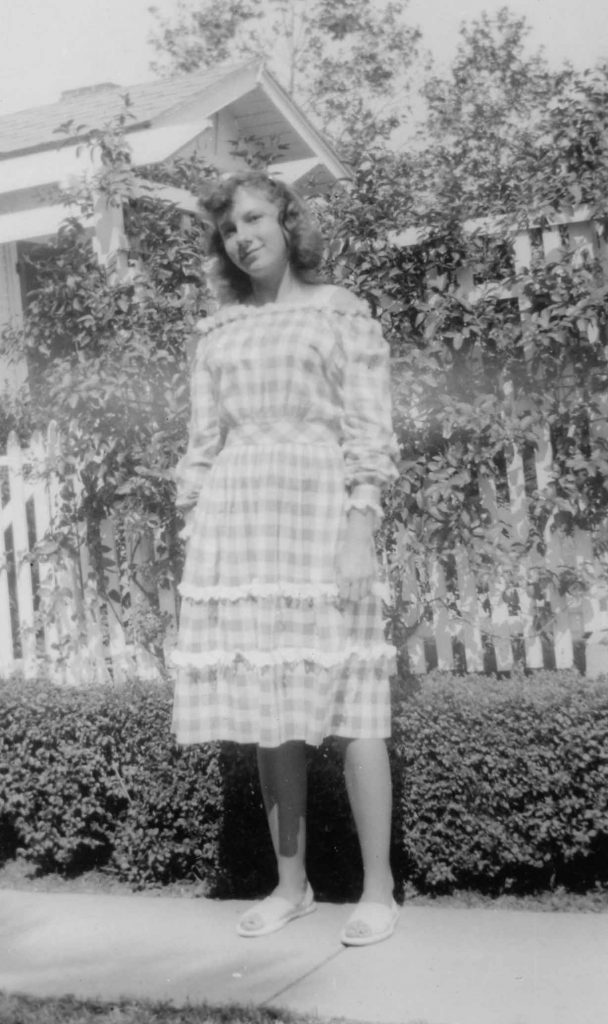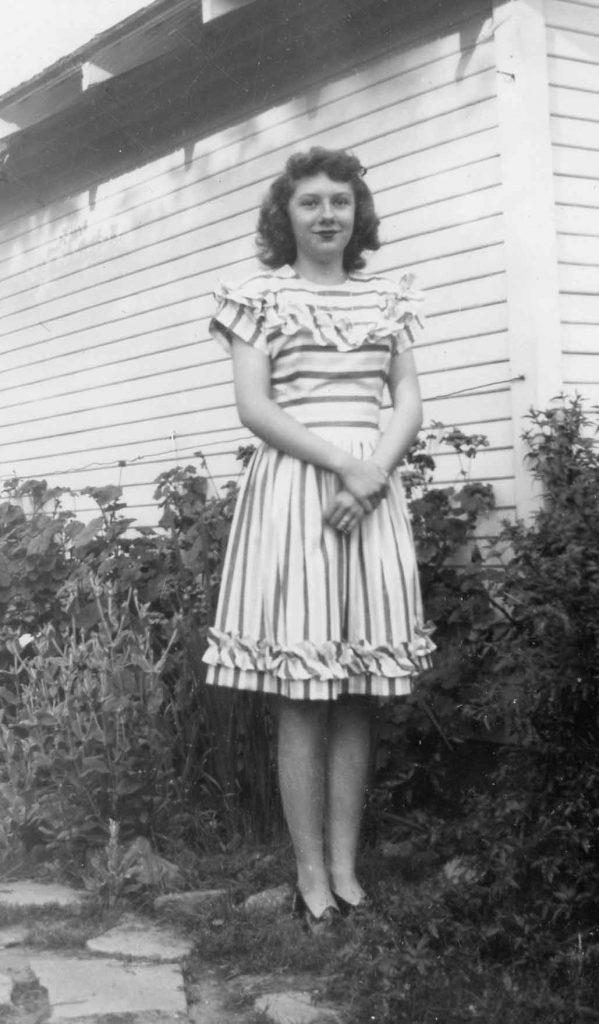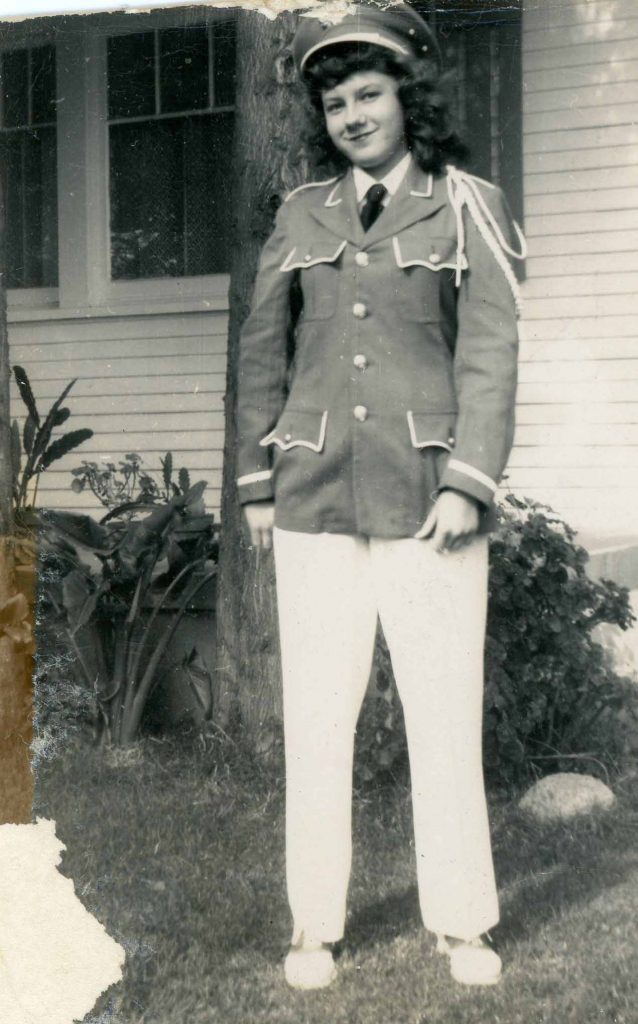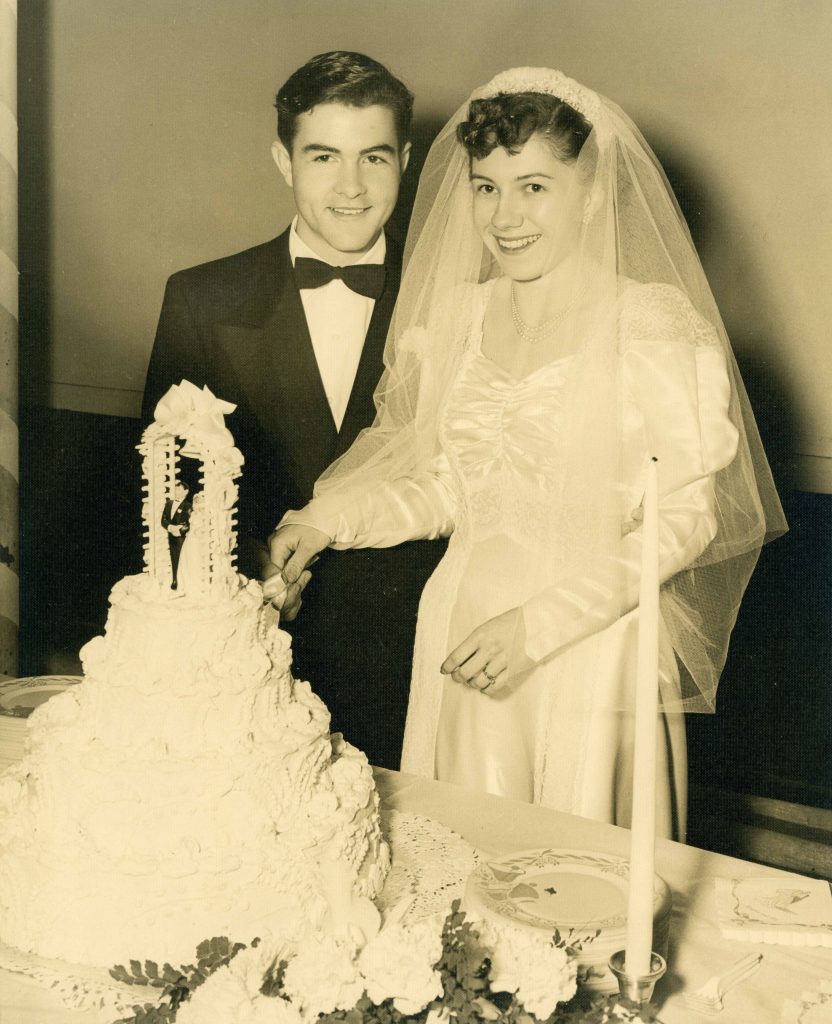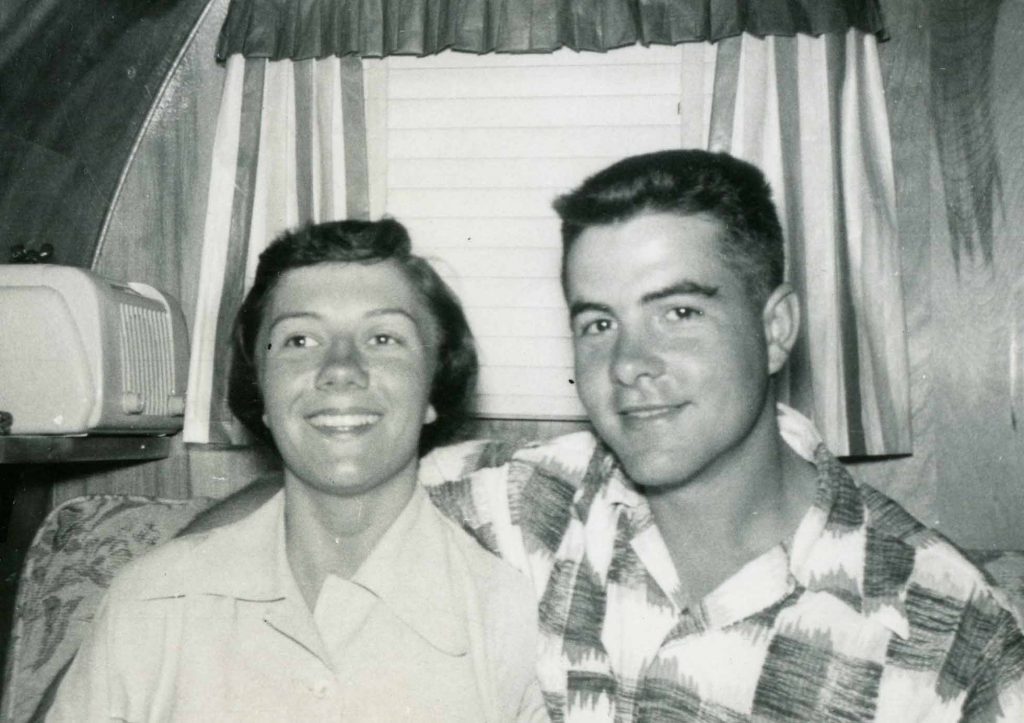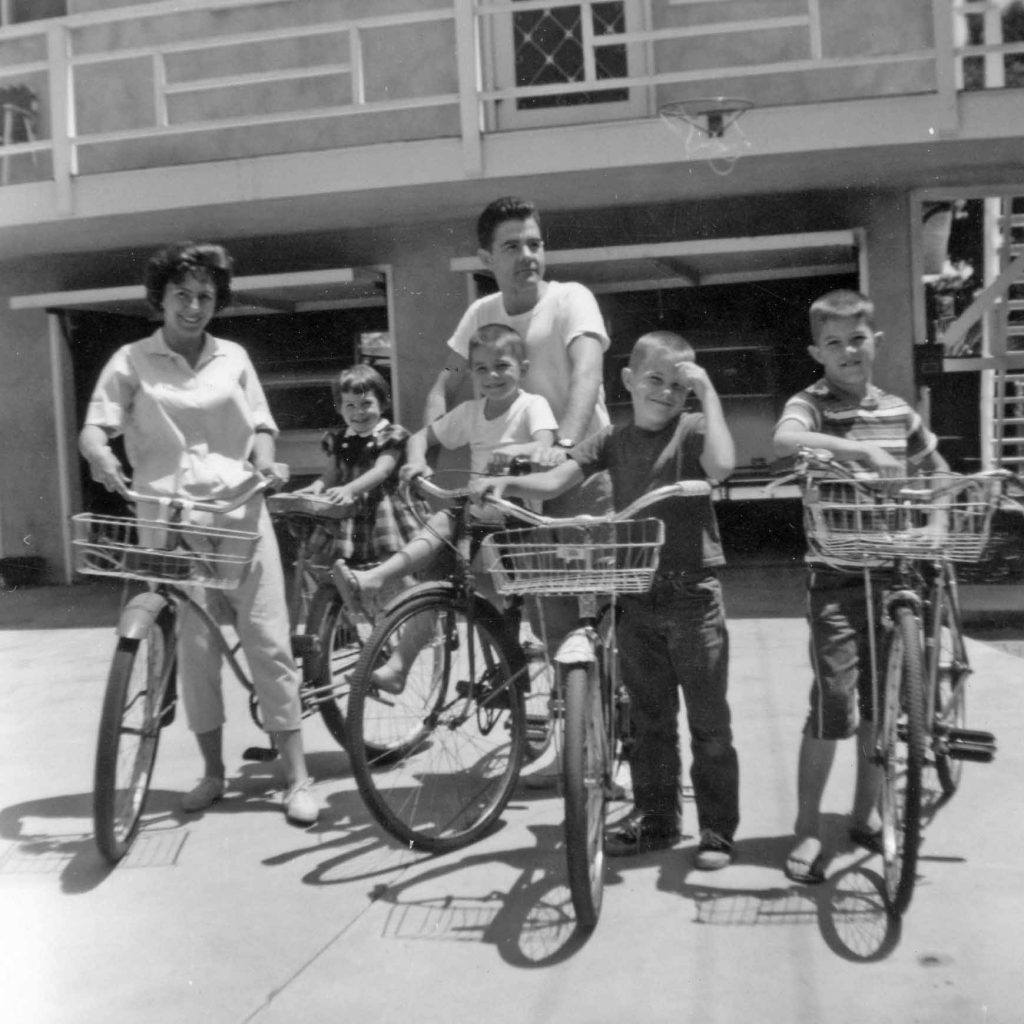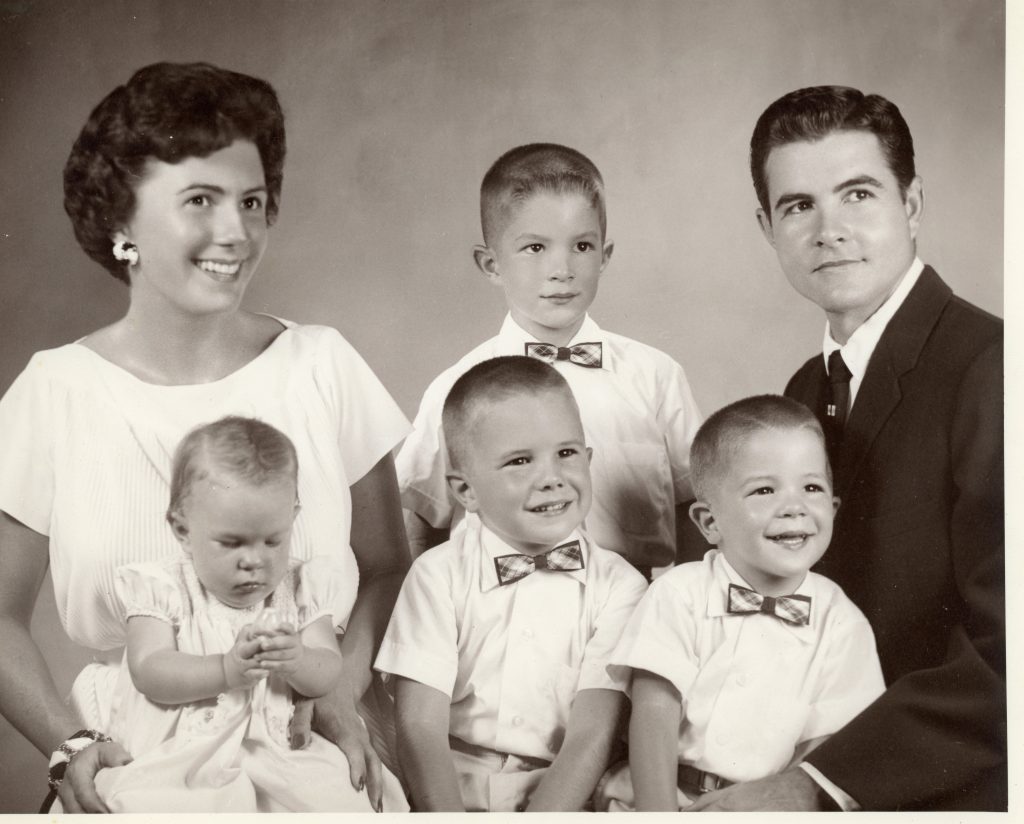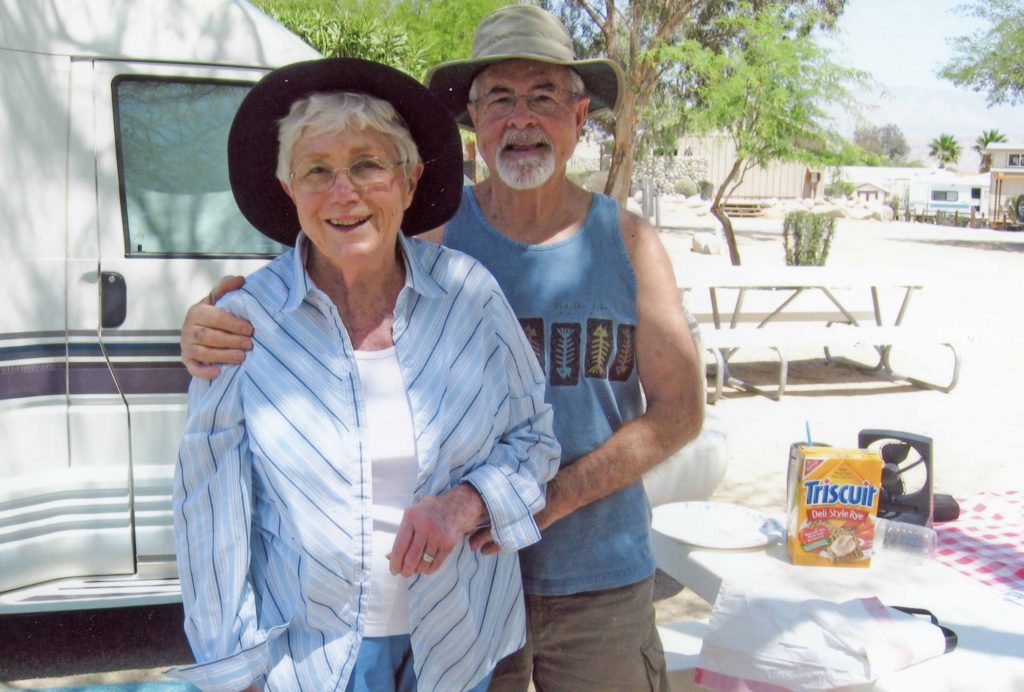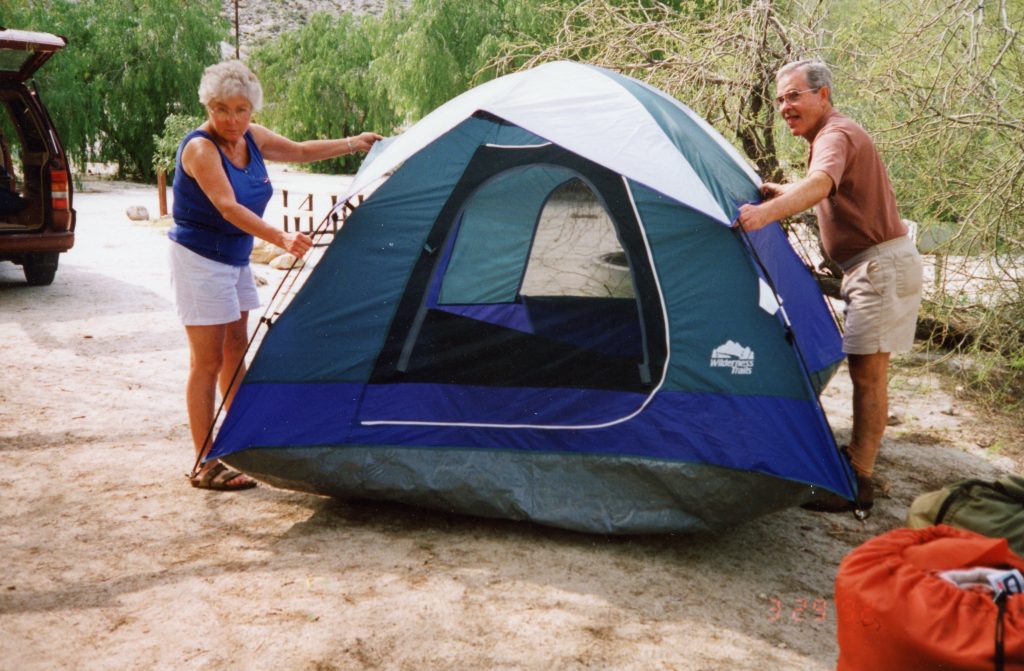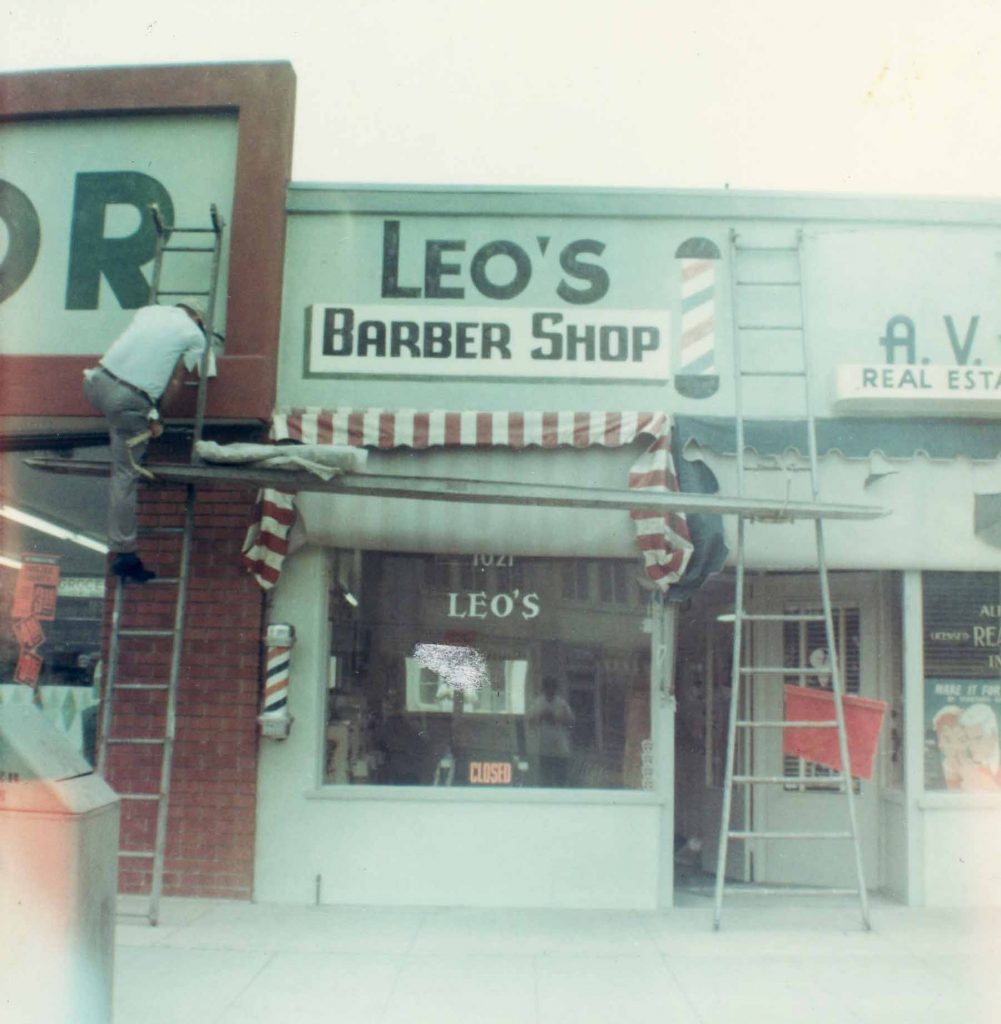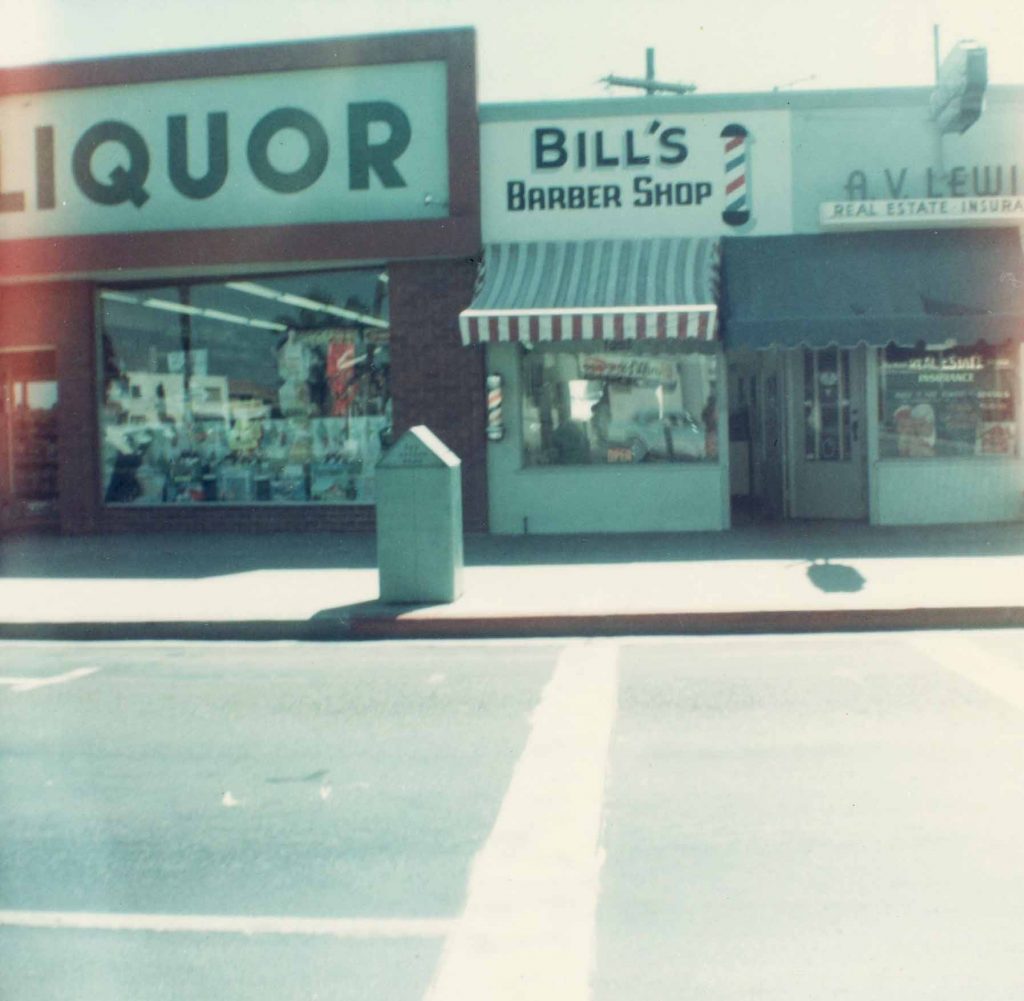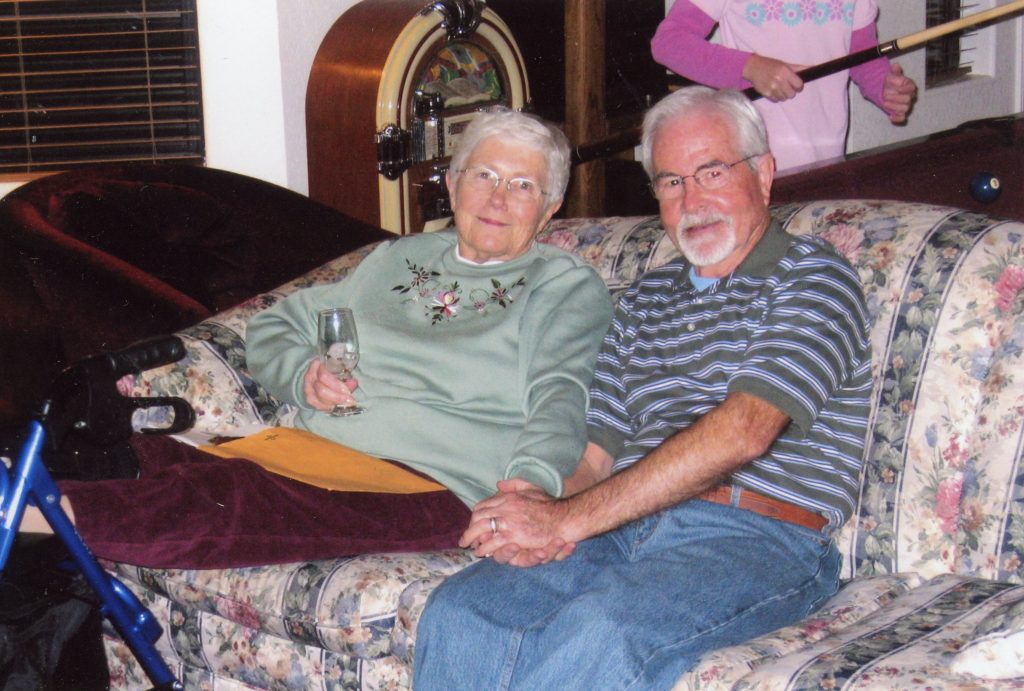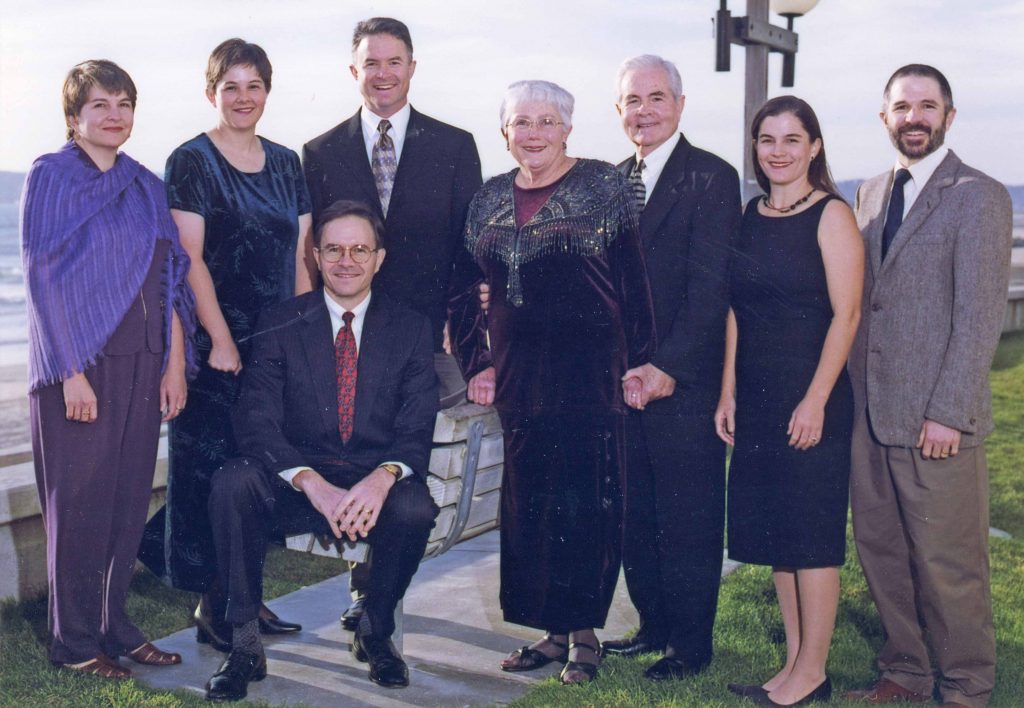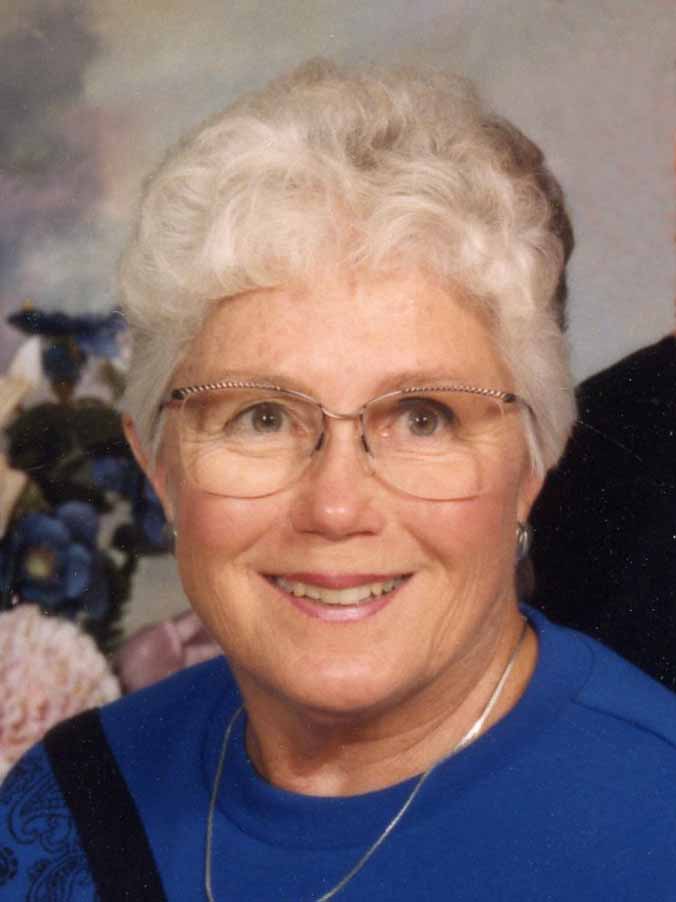
If we were pressed to bestow titles on Virginia and Bill Killingsworth, one might be, “Coronado’s Duchess and Duke of Fine Hairstyling.” For half a century, they gave haircuts and perms to Coronado residents, personally becoming parts of our lives in a way “only your hairdresser knows for sure.”
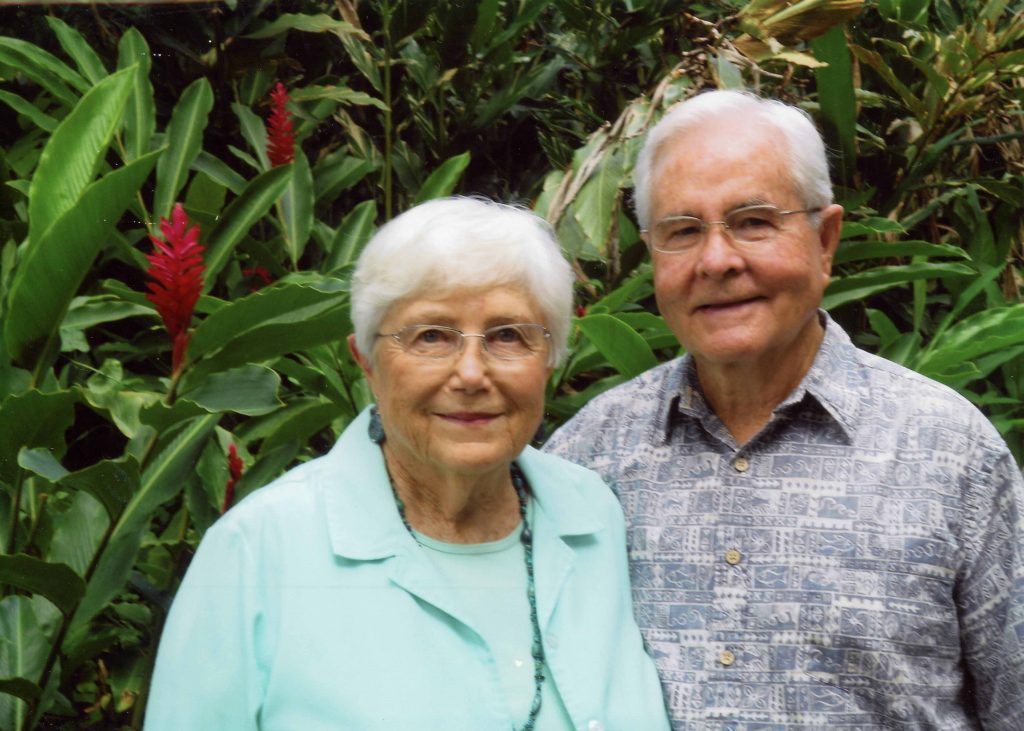
Virginia Killingsworth, a widely-known and loved Coronado resident, was sent to heaven on May 22, 2019. She passed away peacefully on May 22 of natural causes, surrounded by her loving family. She was 87, and had lived in Coronado since 1963.
“A most fulfilling life well-lived,” is the best way to describe Virginia’s time on earth. She survived the Great Depression and natural disasters, a cross-country move and World War II, before she found Coronado, where she and husband Bill raised six children eager to carry on their legacy.
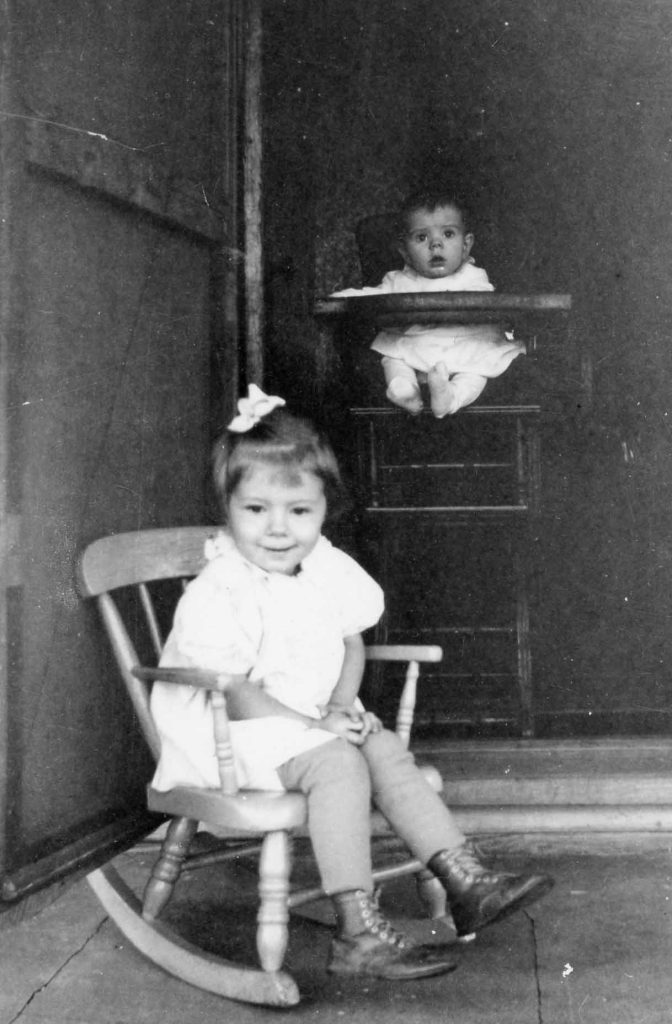
Born April 28, 1932, Virginia was one of four children born to Charles and Gertrude Hawblitzel. She was born in rural Bertrand, MI at the dawn of the Great Depression.
Her father was a salesman and dry cleaner in the Midwest, after having served in the Army during World War I. He eventually became a state sales tax assessor. A proud man, he would always dress in a suit, white shirt, necktie, and Stetson hat, even when working later in life as a gardener.
Virginia’s father had no small role in influencing his daughter’s understanding of right from wrong, the ethics that would guide her through life, and her devout relationship with God.
“I’m so grateful we brought our children up in a household that embraced God,” Virginia would say. “I know that, when I’m gone, we will all see each other again. That’s very important to me.”
As a young child, she was brought up to believe even taking the Lord’s name in vain would cause you to go to hell. “Every night before going to bed we said our prayers. We always prayed for my father because he swore occasionally. I worried so about him dying and going to hell.”
Years later Virginia admitted she was even afraid to say “Oh my God.” She would always say “Oh my gosh.” She said that, in her entire 87 years, she was so concerned over the Lord’s judgment that she never once said, “Oh my God.”
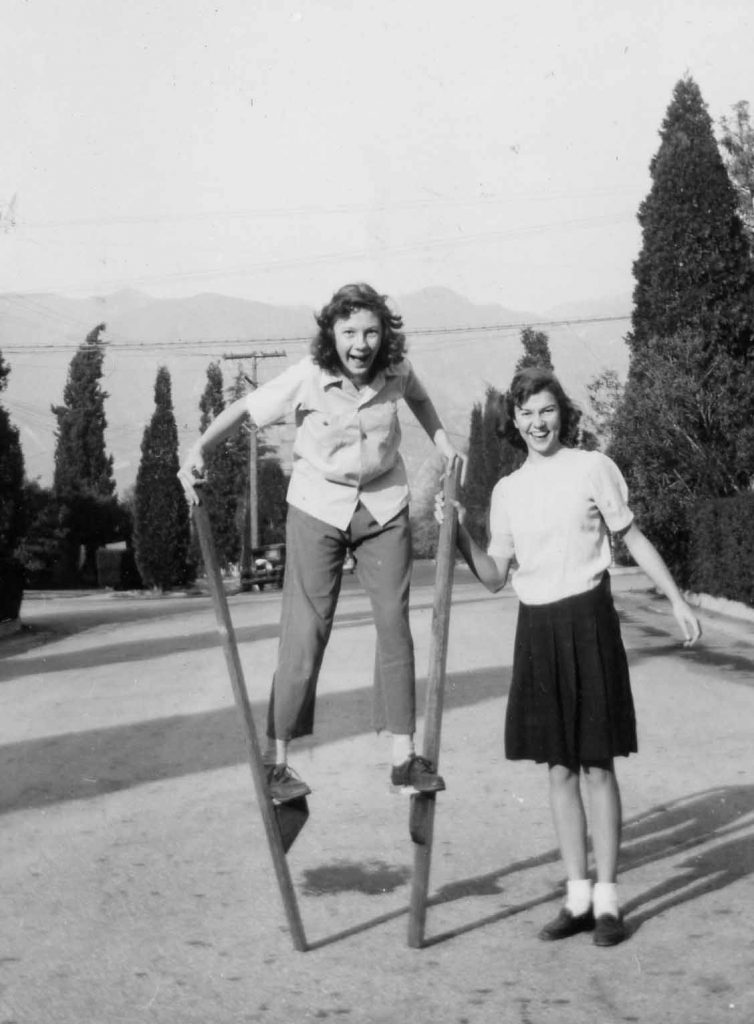
Virginia’s father is remembered as a most resourceful and brilliant man, with limited education, and a generous heart.
“During the Great Depression he often would cook meals for the homeless,” said Virginia. “We lived a couple of blocks from the railroad. Tramps would ride the rails and often stop by. They had marked a post to let other tramps know they would get a meal at our house. My father would cook them bacon, eggs and toast, then serve it to them on our back porch. I would peek around and try to see them. Other families didn’t cook for them that I knew of.”
Virginia was unique in her talent for vividly remembering, telling, and transcribing the many and varied stories in her life, so many of which have inspired mirth in us all. Her memories of her youth were incredibly detailed, especially for one so young at the time.
“In the summer of 1936, we moved from Bertrand, Michigan, to Roseland, Indiana,” she said. “My brother Ralph and I loved to go across the railroad tracks to the woods. We usually found where a tramp spent the night. There would be a place where they had built a fire to cook their dinner. They rode the rails during the day, so we never saw them. My parents didn’t worry about our wandering off to the woods or down by the creek. I doubt they knew we were looking for tramps.
“My father had a large school bell that came from his school when it was being torn down. He put it in our back yard, up on a pole with a long rope. He would ring it when he wanted us to come home. You could hear it for miles, and we would stop what we were doing and run home. When we lived in Bertrand, Michigan, a more rural area, my father rang the bell at noon and 6 pm.”
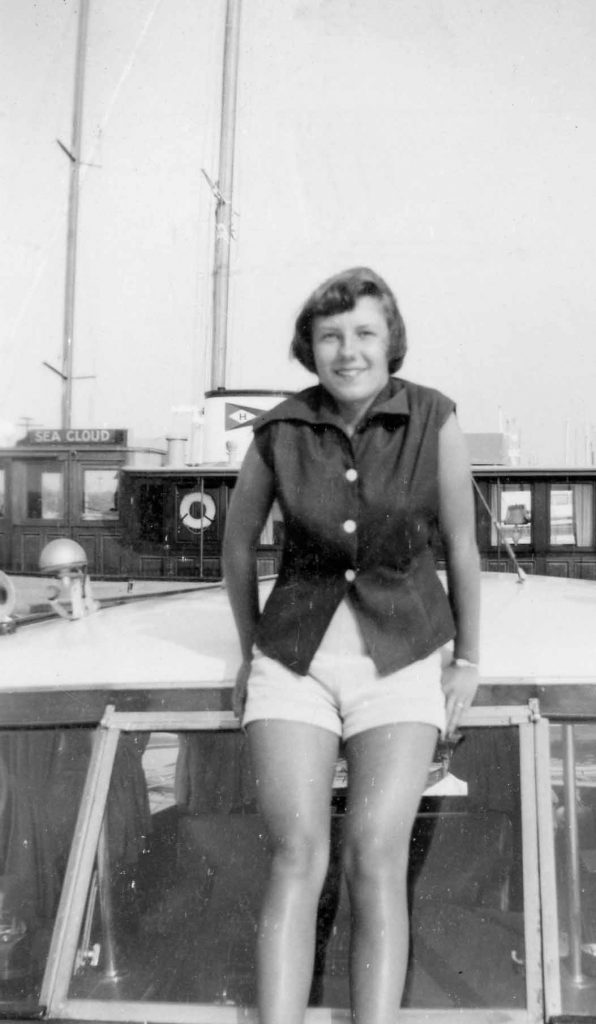
As suggested, Virginia’s memories could fill a giant vault. She remembered the telephone ring specific to their house and party line – one long and two short rings. She remembered a plethora of plants from her childhood homes: ferns, bougainvillea, lilacs, etc. She even remembered how her two older brothers had the larger room across the hall and used to put their chewing gum on the bedposts at night, so they could chew it again the next morning.
“Years later, my youngest brother, Ralph, told me he used to go in his big brothers’ bedroom and chew their gum that was sticking on the bed posts, and then put it back. I can’t imagine doing that and I am glad he didn’t tell me when he did it, or I would have tattled on him.”
Virginia’s mother was a homemaker, then a nurse later in life. Her family was Pennsylvania Dutch. She had chronic bronchitis, which is what led to the family moving from the Midwest to California in 1944.
“I remember we drove on the new highway, Route 66, in our 1942 Hudson,” said Virginia. “It was during the war and gas was rationed. The average auto court was $4 a night. Gas averaged 16.5 cents a gallon. But we got extra stamps and coupons for gas and, despite the hardships, we made it to California.”
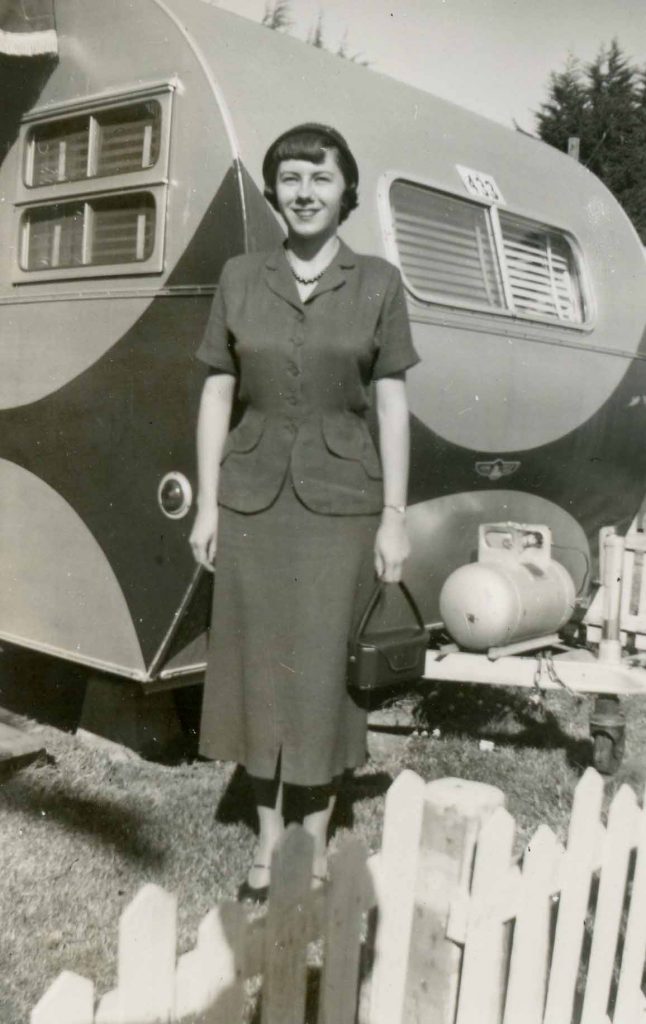
Virginia graduated from high school at Pasadena City College (PCC) in 1950. After high school, Virginia attended junior college at PCC and graduated as a beautician in 1951. It was in Pasadena she met the love of her life, William Killingsworth, whom she had dated since junior high school.
Bill proposed to her at her senior prom, on his 20th birthday. Three months later he joined the Navy and was stationed in San Diego as a dental technician. Virginia and Bill were married on January 27, 1952.
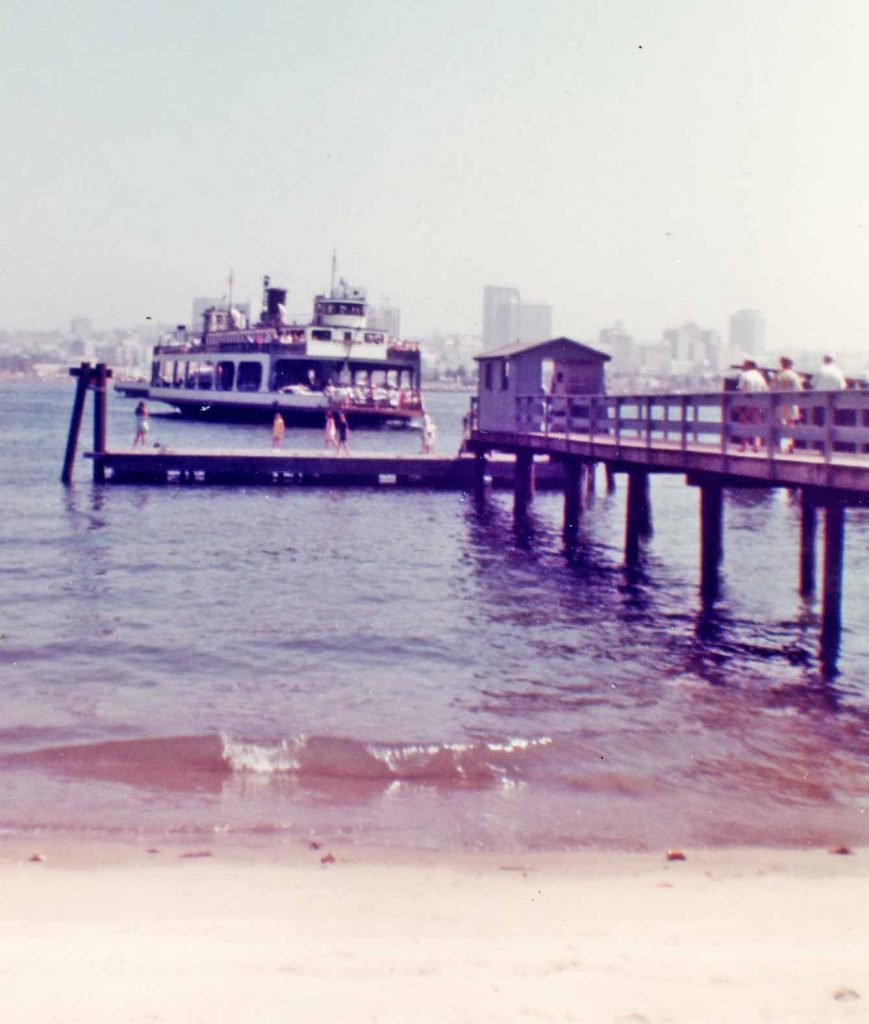
After happy days of trailer-living in San Diego, with Virginia working as a hairdresser in Ocean Beach, there followed a couple more moves before the budding family settled for five years in Serra Mesa. Bill had worked at Leo’s Barber Shop on Orange Avenue since 1956. He would commute by car to the Ferry Landing in San Diego, where his bicycle remained locked to the railing overnight. He would unlock his bike, ride onto the ferryboat to Coronado, and ride down Orange Avenue to and from work every day.
In January 1963 Virginia and Bill, with four children in tow, moved to Coronado. They became active in Sacred Heart Church (and School), the Parent-Teacher Group, and Boy Scouts. Here, Virginia worked as a homemaker and a beautician once again. She began doing ladies’ perms out of her home before demand pushed her to manage a new salon owned by the Mexican Village, next to its banquet room, in about 1968.
Moving from mother/homemaker to businesswoman was a transition Virginia wasn’t sure she was ready to tackle. But her good friend Mary Kay Forsyth convinced her to manage the new salon she had just opened.
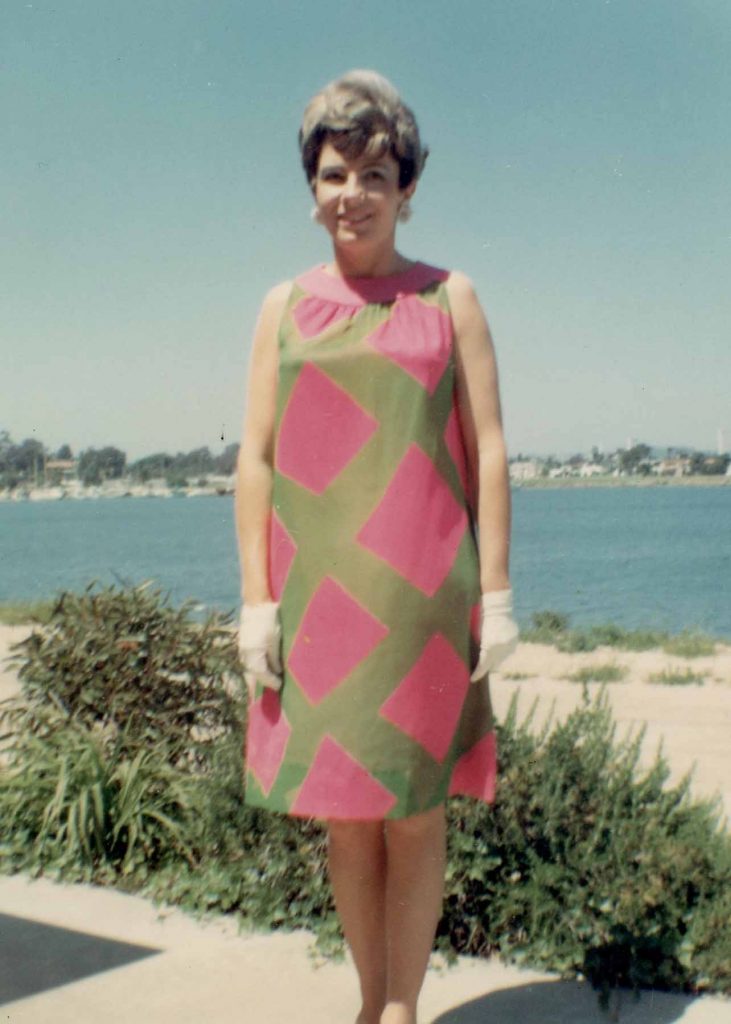
Virginia worked at the salon for a number of years before relocating and working alongside Bill at the Top Deck Barber Salon. Bill had worked at Leo’s Barber Shop on Orange Avenue for many years before purchasing the shop and naming it Bill’s Barber Shop. Several years later, he moved the shop to 1st and B, and renamed it the Top Deck.
Virginia lived her life by the philosophy that you laugh at your own mistakes, not those of your friends. And you always think the best of everybody.
Throughout her long life she enjoyed her children, grandchildren, and great-grandchildren, traveling and camping, and later exploring the U.S. in the family RV. She and Bill took international cruises together. She enjoyed swimming and tandem bicycling. She and Bill bicycled extensively throughout California and Europe. She loved her work and she loved her life. Bicycling became her ongoing and open door to adventure.
For many years she and Bill could be seen on weekday mornings riding their signature blue tandem down the Strand and back up before work, often stopping for breakfast at Jalisco’s Café in Imperial Beach.
Her parents kept journals their entire adult lives. Virginia also kept journals, and before her passing realized the completion of her memoirs –a 308-page manuscript detailing memories of her childhood, her parents, her own family, and her very exciting and fulfilling life.
Sometimes she would awaken at 3 in the morning. Not able to go back to sleep, she would visit Facebook. She freely admitted it was a bad habit, but it was from friends there that she got some of the ideas for her memoirs. The chapter on “Comfort Food” is a good example of that.
In this chapter she described everything from Depression-era corn-meal mush, fried bologna and sauerkraut, homemade noodles, fried brains and beef tongue, peanut butter and mayonnaise sandwiches, and even pickled pigs’ feet served with ice-cold, salted buttermilk. Of course, everything was served with white Wonder Bread, a staple of the time.
“One of my favorite dishes my father made was corn fritters. He made the batter and dropped it by the spoonful into boiling grease. He would put a penny in one of them and whoever got it had to do the dishes. We ate fritters with syrup on top. My friends all liked my dad. On Halloween he would dress up in a costume to answer the door. None of the other fathers did that.”
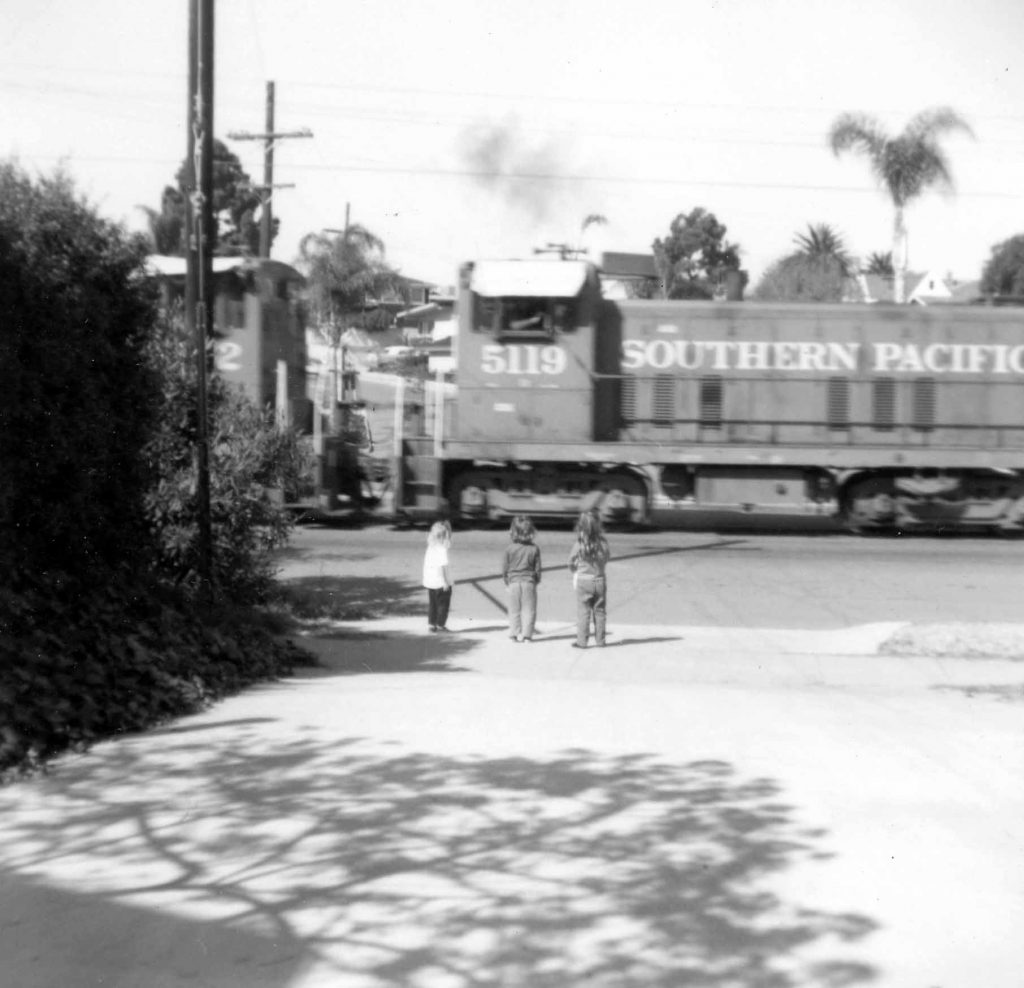
Their first Coronado home was on Pomona Avenue. Virginia remembered how the freight train chugged up the Silver Strand, and up Pomona to North Island Navy Base every Thursday morning at 11 a.m., and how her four young children would stand outside and wave at the engineer. The train, as the ferryboats, left forever in 1969 with the opening of the Coronado Bay Bridge.
In 1964 Virginia took the bus to Hollywood and was a contestant on TV’s Truth or Consequences, with host Ralph Edwards. Her challenge was to call someone out of the phone book on live TV, someone she didn’t know. She then had to keep that person on the phone for three minutes. Virginia won $50 and a BBQ grill. She was ecstatic. It seems her skills as a hairdresser weren’t limited to just giving perms. She could talk a blue streak, and that talent helped her win on Truth or Consequences in front of a nationally-televised audience.
She loved that the town doctor, Dr. Don Dill, would make house calls. When her youngest was born, they had to call Dr. Dill at Marco’s Restaurant, where he was in the middle of dinner. After the delivery, he had the nurse pull a cold Marco’s pizza out of the hospital refrigerator for her. All three promptly enjoyed the delicious pizza.
She also remembered living on a $20-a-week grocery budget for a family of six. Being a child of the Great Depression, she would race down to Safeway on her bike and try to be first in line to buy day-old bread and price-reduced meat.
Over their long years in Coronado, Virginia and family would live on Pomona, Margarita, and J Avenue. They were able to buy the 1914-built home on J Avenue in 1965, where she lived until her passing.
Meanwhile, her husband Bill was approached by Leo, of Leo’s Barber Shop where Bill had been working for years. Leo wanted to retire and asked if Bill wanted to buy the shop.
About the same time, a new realtor in town, former actor, singer, and dancer Johnny Downs, arranged for Virginia and Bill to purchase the adjoining lot to their home for $6,000. Years later they would build and live in their new custom home there, from 1980 to 2002. This transaction proved to be Johnny Downs’ first deal in what would become a long and successful real estate career.
Big expenses were challenging for a family of eight, but through hard work, perseverance, and the help of good friends, Virginia and Bill succeeded.
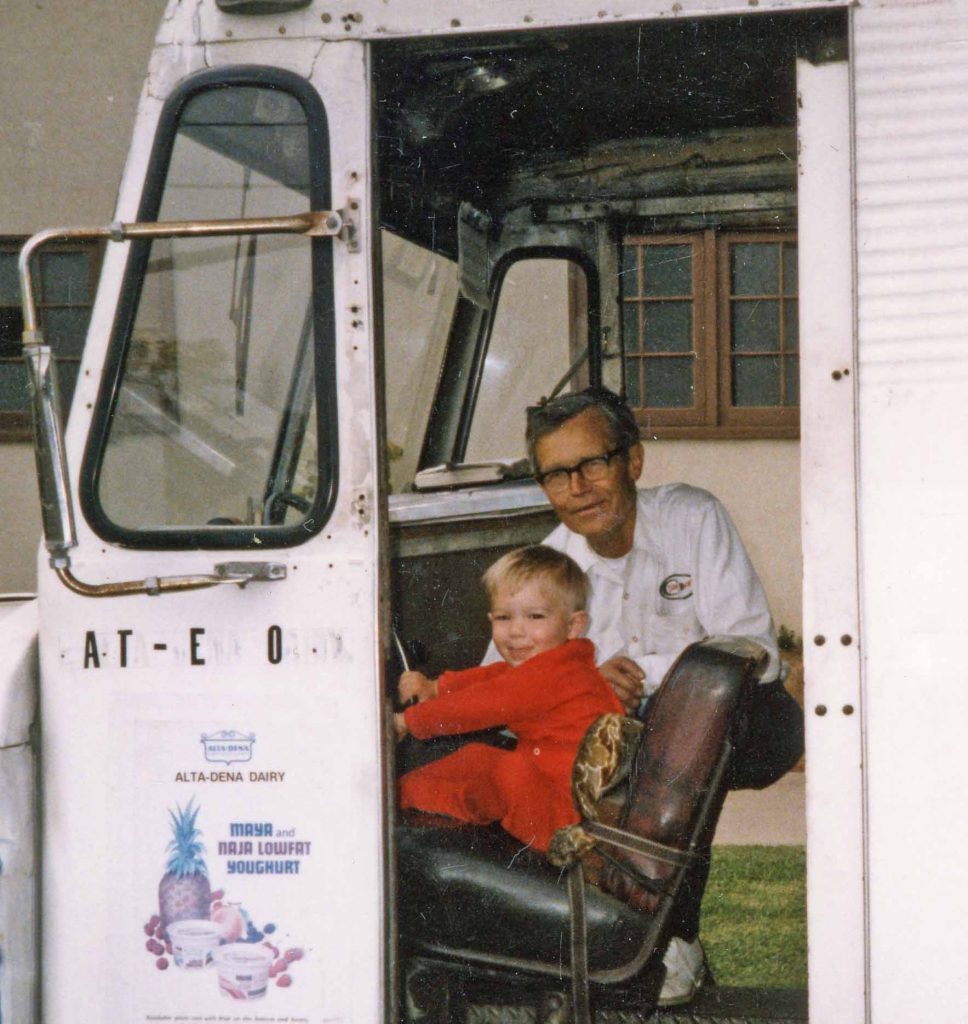
One chapter in her memoirs is dedicated to Bill Wakefield, the Coronado milkman. “I remember how he had keys to most of the houses on his route,” she wrote. “He would stick his head in the door and yell, ‘Milkman!’” Often, she would leave notes for him on the “ice box,” or letters her small children had written to him in school.
Virginia will long be cherished and remembered as a beloved wife, mother, and best friend. She was happy and fun-loving, with boundless energy and an enthusiasm for life. She had a big sense of adventure, and a positive, uplifting spirit that brought to all her friends and family much happiness, laughter and love.
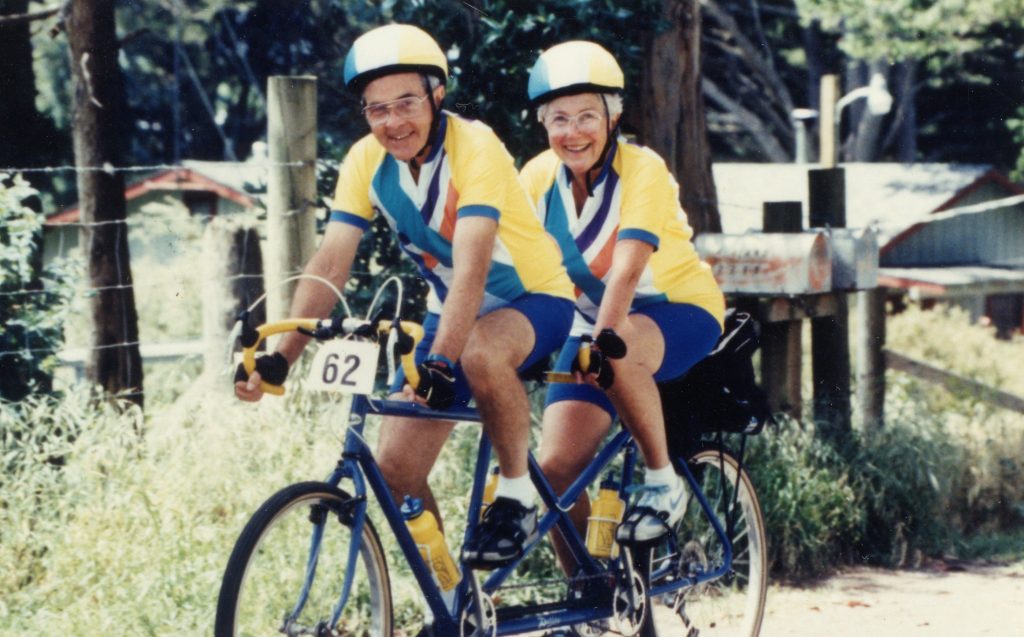 Virginia is survived by her husband Bill Killingsworth of Coronado; sons Steve of Fountain Hills, AZ; Kevin (Michelle) of Mill Valley, CA; and Scott “Serge” (Nancy) of Tigard, OR.
Virginia is survived by her husband Bill Killingsworth of Coronado; sons Steve of Fountain Hills, AZ; Kevin (Michelle) of Mill Valley, CA; and Scott “Serge” (Nancy) of Tigard, OR.
She is also survived by daughters Kim Killingsworth of Nashville, TN; Marla Weston (Greg) of Traverse City, MI; and Kelli Killingsworth (Nicolás Hernández) of San Juan, Puerto Rico.
Also surviving her are eight grandchildren and three great-grandchildren. The third great-grandchild was born May 1, 2019.
Virginia Killingsworth donated her body to science. A memorial service Mass will be held at 10 a.m., Monday, July 8. It will be held at Sacred Heart Church, followed by a reception at 11:30 a.m. at the Winn Room in the Coronado Public Library.
In lieu of flowers, the family requests donations be made “In Memory of Virginia Killingsworth,” to St. Jude Children’s Research Hospital.




